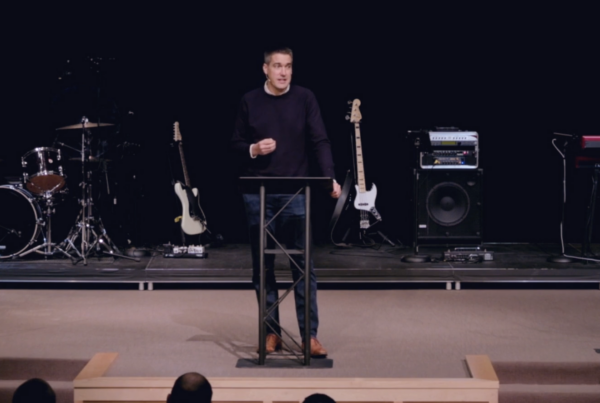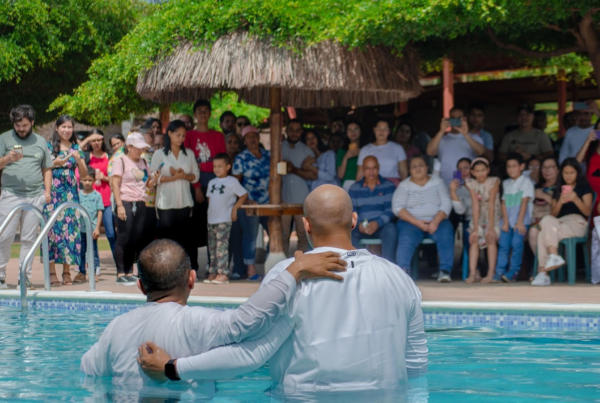So, you are excited about planting a church. The vision is there. You’ve done your research. You know the place where you want to plant. You have the support of your sending church. You’ve got everything except one thing… people! So at this point, some decisions need to be made regarding how exactly you will go about gathering people. Do you approach your sending church and like-minded churches to send you out with a team? Do you begin with Bible studies in the area where you will be planting? Will you be a maverick and launch out on your own with your wife and kids being your first church members? I would encourage you to begin with a small group. In this article, I will not necessarily be answering the question of how one goes about gathering people for a church plant, though that is very much an important question. However, I will be answering the question of Why. Why is it important to gather people/a core team/core group/small group/launch team or however you might want to call it? Why is it important to have a group of people who have bought into the vision of partnering with you to plant a church? To be more specific, why is it important to have a small group that meets together before you begin your public services?
HERE ARE 6 REASONS:
1. WE HAVE A BIBLICAL PRECEDENT
Jesus the Son of God – the greatest leader to have walked the earth, the most perfect human being to have ever lived – gathered a small group. He gathered groups in different layers of discipleship. The 72 (Luke 10:1-24), the 12 (Luke 6:12-16; 9:1-6), and the inner 3 (Luke 8:51; 9:28, 54). These men would go on to establish churches and preach the Gospel to all nations.
2. IT ALLOWS SPACE FOR OTHER CHURCHES TO COME ALONGSIDE THE CHURCH PLANT
In the township, there’s a phrase that is used to describe something that suddenly pops up without many people knowing about it. We call it “mafikizolo” – literally meaning “it just arrived yesterday”. Many church plants lose credibility in a new area because they are seen as “mafikizolo” – the ones who just arrived yesterday. They have no ties to the place they are planting. They have not established relationships in the area. If they had only taken the time to be patient and partner with other like-minded churches, they could corporately own the vision together. Engaging other like-minded churches allows time for that church to be in prayer with you, and possibly encourage some of their people who are already in the area you intend on planting in, to be part of your small group.
3. IT ALLOWS SPACE WHERE THE DNA OF THE CHURCH PLANT CAN BE FORMED
Hopefully, by the time you gather a small group, you would have a basic idea of the fundamental doctrines that you believe in. However, that is not what we mean by DNA. DNA in a church is more than what the church believes and teaches. It involves the culture of living out amongst each other and outsiders the relational beauty of the Gospel. Ray Ortlund explains it like this: “Faithfulness to the gospel requires more than doctrinal purity in our churches. It also requires relational beauty in our churches. But it is possible sincerely to preach true doctrine while, at the same time, utterly deny that doctrine by an ugly anti-gospel culture”. Having a small group prior to public meetings gives an opportunity for all involved to know each other and live out the implications of the Gospel with each other. This will obviously be a continual daily reality. However, the deficit of starting public meetings prior to having a small group is that by the time church starts on Sunday, there’s already so much activity and cultivating Gospel culture will naturally take the back seat. So, you want to be intentional about it from the beginning. That is how Jesus said that men will know we are His disciples (John 13:35). It’s a big deal!
4. IT ALLOWS FOR A SPACE WHERE BOTH THE LEADER AND THE GROUP CAN KNOW EACH OTHER’S STRENGTHS
It is no small thing that in the Bible’s qualification for leaders (2 Tim 3:1-10), it lists more qualities of character than gifting. Whilst gifting can be what makes people follow a leader initially, character is what sustains him in the long haul. Having a small group prior to meeting in public answers 3 questions in the area of leadership: a. How committed is this leader to this work? b. What are the giftings in the group? c. How committed is the small group to the work? This is good for both the leader to know if he is in it for the long haul and for the group to feel the reality of what it’s really like to be part of starting a new church. This is probably the space where future leaders will come from. A temptation, if you do not have leaders who have emerged from a small group, is to put people in leadership who frankly should not have been there. The engine work of running the church plant when chips are down will operate from this space.
5. IT CREATES SPACE WHERE THE SUCCESS OF THE CHURCH PLANT DOES NOT RISE AND FALL ON ONE PERSON
It is such a relief in planting a church to have a team of people around you – a team that carries the burden of the plant with you. Whilst the lead planter will always carry the heavier lifting of the vision, which includes gathering a small group, training leaders and doing most of the preaching, having a small group allows for the burden of the work to be shared between more people. The celebrity-man-of-God-syndrome is alive and well. Having a small group from the beginning brings ownership, growth and vitality. The team will know that they are part of something great and that their contributions matter. They will not feel like they are being dragged along to fulfil one man’s dreams and goals.
6. IT GIVES SPACE FOR THE CHURCH PLANT TO HAVE LONGEVITY
There are many statistics about the percentage of church plants that fail. Having a small group gives the church plant a chance to survive long term. When others who come later misunderstand the vision, or even leave the plant, the people that stay will be that initial small group. I think the main reason for this is because they know the church planter. You would have done life together, they would have seen you at your best and at your worst, and you would know each other’s strengths and weaknesses. They stay because they love Jesus and want to see His vision of making disciples realised in that location, irrespective of who their under-shepherd is.
Having said this, it is also important to mention that church plants do not always start with a small group as I have described above. The Lord is gracious. The Holy Spirit is Sovereign. Many of these principles need to be learned whilst the church plant is already in motion. However, irrespective of where the church plant is, it is never too late to identify that small group within a larger group. These are the people that get it. They are the ones that have signed with ink to your church plant. They get the code. Create that space where DNA can be formed, the training of leaders can start and where future leaders will emerge and take ownership of the work for the glory of Christ and the making of disciples.
Photo by Papaioannou Kostas on Unsplash











